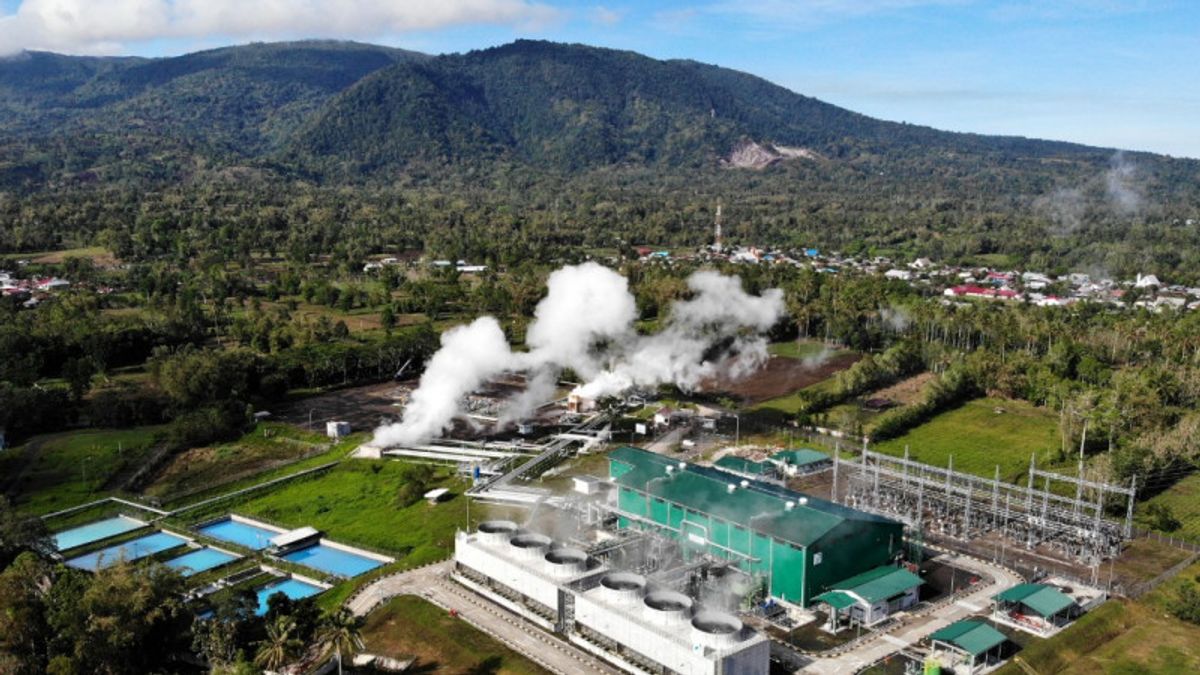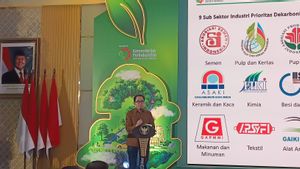PT Pertamina Geothermal Energy Tbk (PGEO) posted a new revenue (new revenue generator) from carbon credit worth US$747,000 or approximately Rp. 11.2 billion (exchange rate of Rp. 14,995 per US dollar) which was recorded in the audited company's (audited) financial report and published on March 30, 2023.
"In terms of operation, carbon credit revenue is generated by two Geothermal Power Plants (PLTP), namely Ulubelu units 3 and 4 and Karaha which produce equivalents of 1.7 million tons of carbon emission reduction calculated since the plant was commercially operational until early 2020," said PGE President Director Achmad Yuniarto in a statement in Jakarta, Saturday.
In addition, PGE also recorded the potential for reducing carbon emissions from PLTP Kamojang unit 5, Lumut Balai unit 1 and 2 which used Gold Standard, as well as PLTP Lahendong Units 5 and 6 which used Verified Carbon Standard (VCS).
"All of these efforts open up new opportunities that have the potential to increase the economic value of reducing carbon emissions and will directly open up new income opportunities for PGE," he said.
Carbon credit is a permit or certificate granted to a company to be able to issue carbon dioxide or other greenhouse gases in certain amounts in accordance with predetermined regulations.
Currently, continued Achmad Yuniarto, PGE manages 13 Geothermal Working Areas (WKP) with an installed capacity of more than 1.9 Gigawatts (GW), of which 672 megawatts (MW) are operated and managed directly by PGE and 1,205 MW are managed with a Joint Operations Contract scenario.
The capacity of geothermal installed in the PGE working area contributes about 82 percent of the total geothermal installed capacity in Indonesia, with the potential for reducing CO2 emissions of around 9.7 million tons of CO2 per year.
Regarding the contribution of emission reduction produced by the PLTP operated, Ahmad Yuniarto, who is familiarly called AY, stated that PGE also has the Environmental Sustainability and Governance (ESG) initiative.
This ESG commitment has been proven by achieving the second highest ranking at the ESG Rating (ER) in the good performance category in terms of ESG management by the Sustainable Fitch rating agency.
Some of the already running ESG PGE programs include the biodiversity program of the Eagle Conservation Center, especially the Javan eagle species or nisaetus bartelsi in the Kamojang area, gambart breeding, crisis flower conservation, Saburai goat breeding, and Sulawesi guava cage conservation (Yaki).
In addition, PGE also rehabilitated forest areas of 588 ha and made massive reforestation efforts. PGE is committed to developing communities through the Kamojang Digital Village program with the Ranger Apps digital application program which aims to empower surrounding micro, small and medium enterprises (MSMEs) and the "Signal Kita" tree WiFi service.
Through the two programs above, PGE's ESG commitment can be directly felt in supporting environmental and circular economic sustainability through paid internet connections using waste or by planting trees.
In addition, PGE also runs Emergency Response Group Millennials (ERMi), which is a community empowerment program in the Ulubelu area that focuses on disaster management and the environment, such as the installation of landslide detections. The use of geothermal for green hydrogen is a potential opportunity in the future.
In many countries, PLTP is used as a producer of electricity sources to produce hydrogen through an electrolysis process for various purposes. Two of them are for the transportation and petrochemical sector, where in the future green hydrogen is believed to be a game changer to achieve decarbonization.
The English, Chinese, Japanese, Arabic, and French versions are automatically generated by the AI. So there may still be inaccuracies in translating, please always see Indonesian as our main language. (system supported by DigitalSiber.id)













